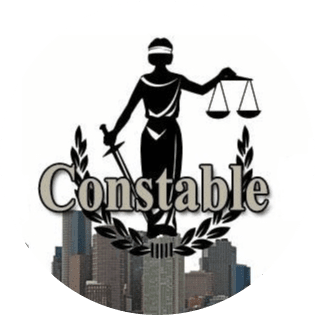What is Skip Tracing?

Skip tracing is the practice of locating individuals who have gone or have been deliberately hidden, usually with the purpose of enforcing a legal judgment, collecting debts, or serving legal papers. It can also be used to find individuals who have left contact information like phone numbers, addresses, or email addresses, making it impossible to reach them. Skip tracing is widely utilized by private investigators, debt collectors, and prosecutors, Lawyers and Constables . Investigators use various techniques and skip tracing tools to track down a person's whereabouts, including the use of public records, social media, and databases. Skip tracing can be a complex process that involves deep research and analysis, making it an essential tool for creditors, attorneys, and debt collectors when they need to locate a debtor who has vanished. Overall, skip tracing plays an important role in law enforcement efforts and legal proceedings, making it a valuable tool in the justice system.
In today's highly connected world, it's relatively easy to find information about anyone or anything online. However, there may be instances when the information is elusive, and you need to track down somebody's whereabouts. That's where skip tracing comes into play. Skip tracing services refers to the process of locating someone who has gone missing, typically with the aim of debt collection or legal action. It is a highly specialized field that involves sophisticated techniques and tools to unearth information about the target. In this blog, we'll explore the basics of skip tracing, including its definition, purpose, and key methods. We'll also look at some essential tips that can enable you to conduct successful skip-tracing investigations. Whether you're a private investigator, debt collector, or just someone looking to reconnect with a long-lost friend or relative, this blog will provide you with valuable insights into the world of skip tracing.
How Does Skip Tracing Work? Skip tracing is a technique used to locate people who have gone missing or are deliberately hiding from creditors or other parties. It involves gathering information about the person's current whereabouts and identifying potential contacts, such as family members, friends or associates, who might be able to provide further insight. Skip tracers often rely on public records, online databases, social media searches, and other investigative strategies to track down their target. Once a lead has been identified, the skip tracer may contact the person directly or use the information to conduct additional research. Skip tracing is commonly used by debt collectors, private investigators, bounty hunters, Boston Massachusetts Constables, and legal professionals who need to locate individuals for various reasons. While it can be a challenging and time-consuming process, skip tracing can also be a valuable tool for finding people who are difficult to locate through conventional methods.
Skip tracing is a term used by private investigators to describe the process of tracking down an individual's whereabouts. The practice involves using various online resources and databases, as well as conducting interviews with family members, friends, and associates, in order to locate the person in question. While skip tracing is a legal practice, there are strict regulations and guidelines that must be followed to ensure that the investigator does not violate the individual's privacy rights. For example, investigators must obtain written consent from the person they are tracing before accessing their personal information, and they must only use that information for the purpose of finding the individual. Additionally, skip tracing is not allowed to involve any form of harassment or misconduct, and investigators must adhere to all federal and state laws governing the use of personal information.
Skip tracing is the process of tracking down individuals who have relocated or disappeared without leaving any forwarding information. Skip tracing is primarily used by debt collectors, process servers, and bail bondsmen, real estate investors. The techniques used in skip tracing include searching public and private databases, social media networking, Surveillance and conducting interviews with family members, friends, and colleagues and surveillance. Skip tracing is a time-consuming process that requires patience and an attention to detail. Typically, a skip tracer will start with basic information about the subject, such as name, address, and social security number, and then use that information to compile a comprehensive report on the individual background checks. It's even more difficult without basic data which is why professional skip tracing techniques are important. The report can include current and previous addresses, employment history, criminal record, and other personal information. With the information gained from skip tracing, creditors or bondsmen can take the appropriate next steps to secure payment or locate their target for other reasons.
When looking to locate missing persons, assets, or defendants hiring a professional skip tracer can be incredibly useful. Skip tracing is the process of tracking down individuals or their assets, and it requires specialized skills and tools. If you're having trouble finding someone or something, or if you suspect someone is intentionally hiding or avoiding you, it may be time to hire a skip tracer. Massachusetts Skip tracers & Massachusetts Private Investigators are trained in investigative techniques and have access to databases and resources that the average person does not. They can help you locate family members, debtors, fugitives, and other individuals or property owners. Hiring Colon Constable Services for all your skip tracing needs is a smart choice, as they have the expertise and experience needed to get the job done. Don't waste any more time searching on your own – let a professional skip tracing company help you.
Contact Us
Fill The Form Below To Get In Touch
Any questions you might have, we will gladly answer them.
* All Signors Must Have a Valid Form Of State or Federal Photo Bearing Identification.
Once an Appointment is Booked and agent is assigned or dispatched there are No Refunds
Colón Constable Services Reserves the right of refusal of service per case basis. *
